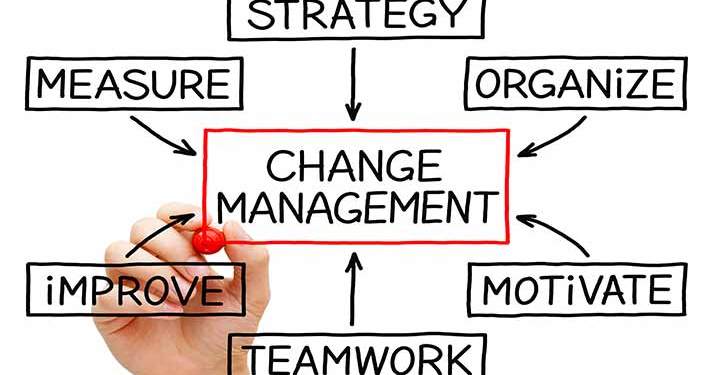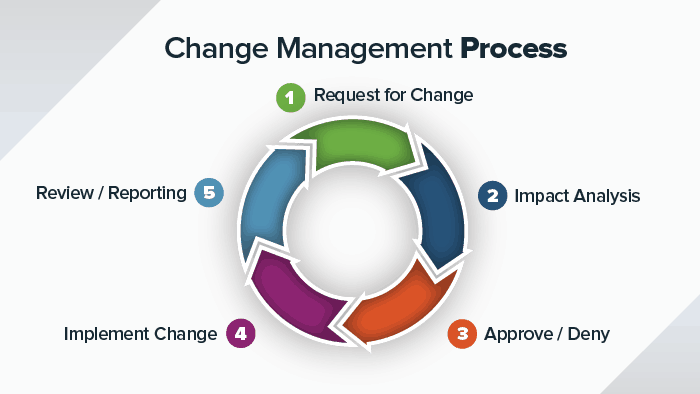Change Management documentry¶

Defination¶
 change management is a structured and systematic approach to dealing with the transition or transformation of an organization's goals, processes, or technologies. It involves planning, implementing, and monitoring changes in a way that minimizes resistance, ensures smooth adoption, and maximizes the benefits of the change. Change management aims to help individuals and organizations transition from their current state to a desired future state effectively.
change management is a structured and systematic approach to dealing with the transition or transformation of an organization's goals, processes, or technologies. It involves planning, implementing, and monitoring changes in a way that minimizes resistance, ensures smooth adoption, and maximizes the benefits of the change. Change management aims to help individuals and organizations transition from their current state to a desired future state effectively.
Identifying the Need for Change¶
The company recognizes issues with its current manual system, such as increased customer complaints, inefficient processes, and data inaccuracies. A thorough analysis is conducted to identify the root causes of these problems and determine the need for a CRM system to address them.
Planning and Designing Change¶
 A change management team is formed, consisting of individuals with expertise in project management, communication, and employee engagement. The team collaborates with IT professionals to outline the scope of the CRM implementation, set specific goals (e.g., reducing response times, improving data accuracy), and create a detailed project plan with milestones and timelines. Resources required for the project, including financial, human, and technological resources, are identified and allocated.
A change management team is formed, consisting of individuals with expertise in project management, communication, and employee engagement. The team collaborates with IT professionals to outline the scope of the CRM implementation, set specific goals (e.g., reducing response times, improving data accuracy), and create a detailed project plan with milestones and timelines. Resources required for the project, including financial, human, and technological resources, are identified and allocated.
Stakeholder Engagement¶
The change management team identifies key stakeholders, including employees who will be directly impacted, managers, and executives. A communication plan is developed to inform stakeholders about the reasons for the change, the benefits it will bring, and how it aligns with the company's overall strategy. Feedback channels are established to address concerns and gather input, fostering a sense of involvement and ownership among employees.
Implementation¶
The CRM system is rolled out gradually, starting with a pilot phase in one department to identify any unforeseen issues. Comprehensive training programs are conducted for employees at all levels to ensure they have the necessary skills to use the new system effectively. The change management team closely monitors the implementation, addressing any resistance or challenges promptly, and providing ongoing support.
Monitoring and Evaluation¶
 Key performance indicators (KPIs) are established to measure the success of the CRM implementation, such as customer satisfaction scores, response times, and data accuracy rates. Regular assessments are conducted to gather feedback from users, identify areas for improvement, and make necessary adjustments to the system or training programs. The change management team communicates the achievements and benefits of the CRM system to employees and stakeholders, reinforcing the positive aspects of the change.
Key performance indicators (KPIs) are established to measure the success of the CRM implementation, such as customer satisfaction scores, response times, and data accuracy rates. Regular assessments are conducted to gather feedback from users, identify areas for improvement, and make necessary adjustments to the system or training programs. The change management team communicates the achievements and benefits of the CRM system to employees and stakeholders, reinforcing the positive aspects of the change.